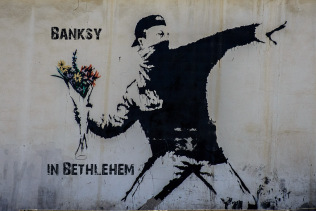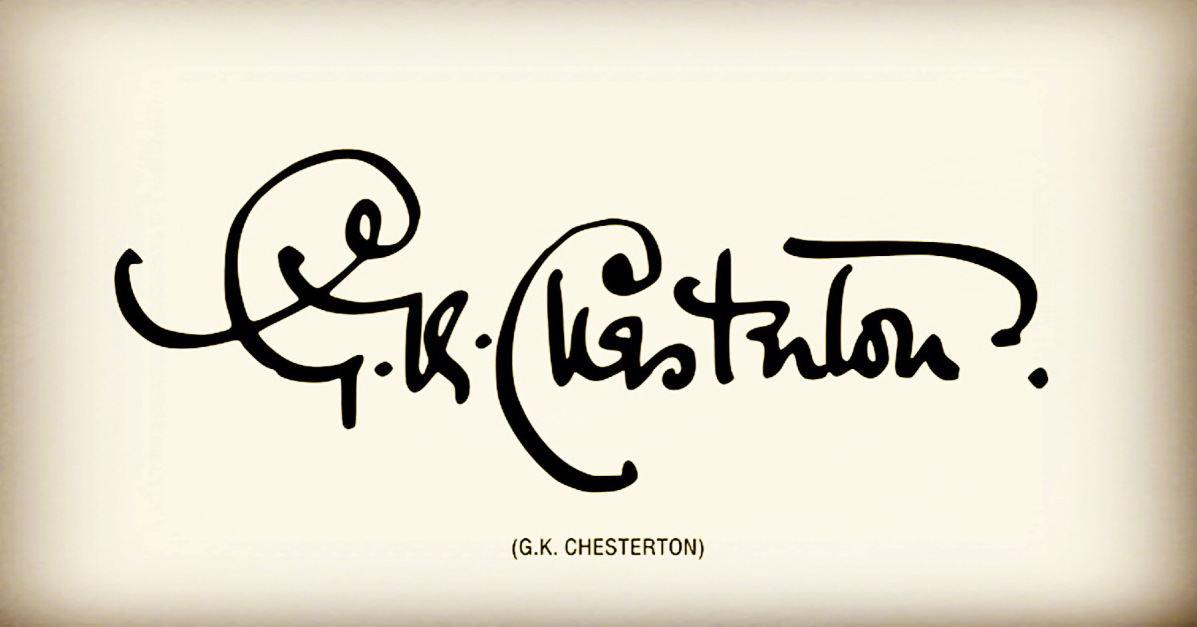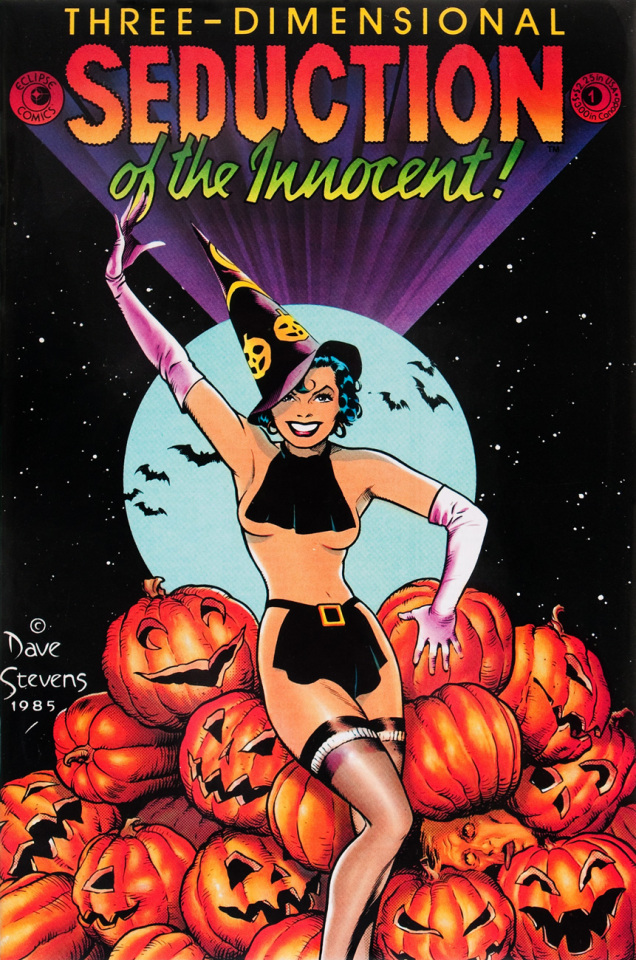
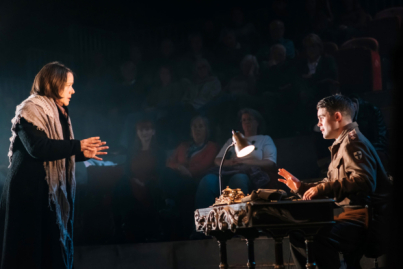

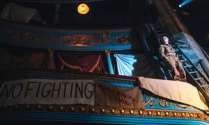
10/10/17
Lyceum Theatre, Edinburgh
If you want to see the Lyceum in a completely different light, then now is the time to do so, as the whole place has been transformed for a timely production of Bridget Boland’s Cockpit, a challenging political piece set in the aftermath of World War Two.
It’s hard to make truly immersive theatre in a Victorian proscenium arch, but the design here is radical. There is raked seating on the stage, facing the auditorium, making the performance space effectively traverse. There are suitcases spilling their guts onto random seats; ladders leading up to (and down from) the boxes; the gantry is exposed. Even the trap-room is utilised. And yet, despite being rendered almost unrecognisable, the theatre building is also given a central role in this production, which is – cleverly – site-specific. For we are all (actors and audience) cast as displaced people (DPs), released from prisons and concentration camps across Germany but not yet able to celebrate our liberation. Instead we are cooped up in a provincial German theatre, which has been requisitioned by the British Army to serve as a holding pen before we are repatriated.
There’s a strong reminder here of the complexity of war: the common enemy may have been defeated but there are other grievances just as entrenched, which may never be resolved. This exploration of European history and relations seems especially prescient, as – outside the theatre – we try to navigate the choppy waters of Brexit. Divisions within our own country are deep and rancorous; our relationships with others have yet to be determined. Cockpit feels as though it could have been written last week, although in fact it was penned in 1948. These are interesting times in which to consider the notions of idealism versus pragmatism, hope versus despair.
Cockpit is a witty, clever play. Forcing people of different nationalities and political persuasions to co-exist in a confined space allows the arguments put forward to appear spontaneous and natural, while the plot device of a suspected plague outbreak ensures we also see the characters’ common humanity, as they put aside their differences to focus on survival. The enormity of the task faced by Captain Ridley (Peter Hannah) is made very clear. A workable exit strategy seems nigh on impossible, as tensions rise between the various factions, and no one is prepared to compromise.
There is comedy here too: Dylan Read (who also plays French farmer Duval) excels as Bauer, the uptight stage manager, who prizes saving his beloved building above all else. His pomposity is funny: he fusses over petty details, takes great delight in providing props, bristles at the suggestion he might be ‘front of house.’ Through him, Boland also explores the redemptive power of theatre, a thread which culminates in an awe-inspiring performance from La Traviata by singer Sandra Kassman. Bauer might seem ridiculous, but preserving art and culture is important, we are shown.
Director Wils Wilson has served up a fascinating piece of theatre, which, if not exactly enjoyable, is nevertheless arresting and thought-provoking. It’s provocative and demanding; it’s not an easy piece to watch. But it’s certainly worth the effort, and will have you thinking long after the curtain falls.
4.5 stars
Susan Singfield
Advertisements Share this:


